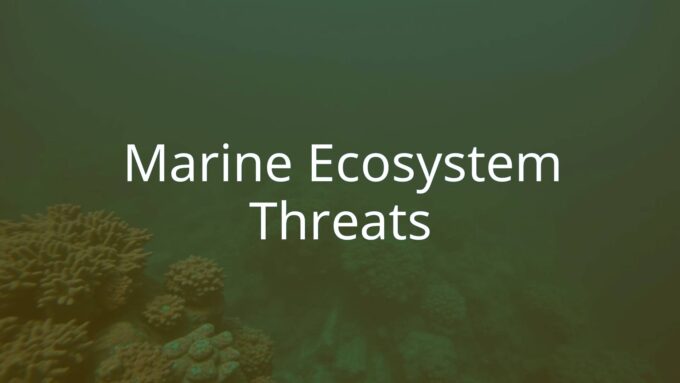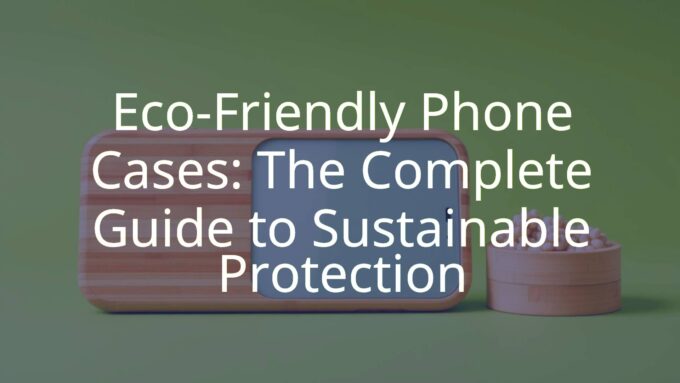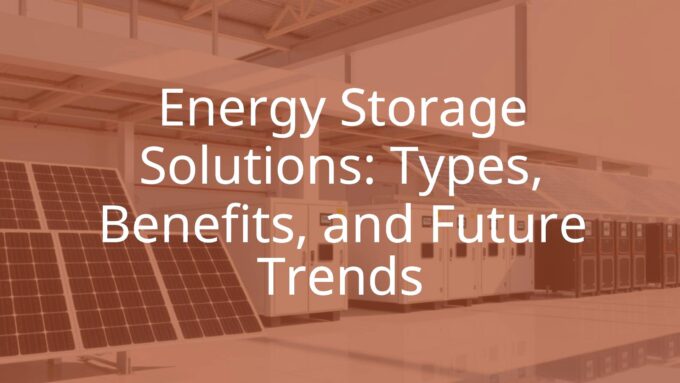Encouraging others to start a zero-waste lifestyle can seem tough, especially if you’re already very passionate about it. Chances are, you’ve spent time creating eco-friendly habits that are now a normal part of your routine. Your experience is valuable – it can inspire those around you to cut down on waste, too. This article covers simple ways to share your zero-waste lifestyle, focusing on what gets people interested, common problems they might face, and how to make a positive difference. Keep in mind, you can’t make choices for other people, but you can help raise awareness and share your story. Your example can start a chain reaction of positive change.

What helps people switch to zero waste?
Knowing what makes people change their habits is key to getting them interested in zero waste. Most people need a reason, a personal connection, or to see a clear benefit before they try new things with their lifestyle. If you understand what these motivators are, you’ll have a better chance of helping, without sounding pushy.
Personal Values and Caring About the Environment
Many people start their zero-waste journey because it matches their values or because they care about the planet. They might have seen documentaries like “A Plastic Ocean” or “Planet Earth,” or learned about the serious problem of plastic in our oceans. Facts, like there might be more plastic than fish in the ocean by 2050, can prompt people to want to help. When someone feels a personal connection to the bigger issue, they’re more likely to act.
To help others, share your own reasons for going zero waste. Maybe you were moved by a story, a personal experience with nature, or learning where your trash actually goes. Sharing your “why” helps people see things from your point of view and may help them connect their own experiences to the cause. Let your story show them how you see the world differently now.
Friends, Family, and Community Influence
People often copy what they see in their group of friends, family, or coworkers. When more people around us make eco-friendly choices, it feels normal and possible. A sense of belonging and support from a group can encourage someone to try out new habits together.
Doing activities as a group – like picking up litter, shopping at a farmers market together, or just seeing someone bring their own reusable coffee cup – can really help. It shows these changes aren’t hard, and you’re not alone in doing them. Seeing others make zero-waste choices can encourage more people to do the same.

How Easy and Beneficial It Seems
Worrying that zero waste is expensive, hard, or time-consuming often stops people from trying it. But in many cases, the opposite is true.
Show how living with less waste can save money, be healthier, or help keep life simple and tidy. If you mention that you spend less on groceries, eat better, or feel better in a less cluttered home, it makes zero waste sound less scary and more inviting. When people see the clear, real-life benefits, they’ll be more interested and willing to try.
What stops people from going zero waste and how can you help?
Even with good intentions, people face several obstacles to starting a zero-waste lifestyle. These could be old habits, common mistakes, or feeling overwhelmed. Your job is to spot these problems and help make it easier for them, not just point them out.
Handling Misunderstandings and Discomfort
Some people think zero waste is too hard, not realistic, or only for certain people. They might worry about cleanliness with reusable containers, convenience, or feel it’s just for the wealthy. These ideas can turn into reasons not to try.
Instead of correcting them sharply, try asking questions like, “What makes you unsure about bringing your own coffee cup?” or “Are there things about composting that worry you?” Hearing them out and responding with honest information helps clear up confusion and counter these worries in a kind way.
Give Simple, Realistic Solutions
Some people want to make changes but have no idea how to begin. They might think it’s expensive or too big of an effort. That’s where you can really help.
- Suggest small, easy changes, like bringing a reusable water bottle or shopping bag.
- Show how cheap and easy it is to make cleaning products from baking soda and vinegar.
- Share products that have actually helped you, so they don’t have to do all the research.
Making the first steps easy gives them the confidence to start and make progress.

Let People Move at Their Own Speed
The most important thing is to remember that change takes time. If you push too hard or get upset if their progress is slow, it can make people less likely to try. Remember the saying: “You can lead a horse to water, but you can’t make it drink.”
Be patient and understanding. Everyone is different and might not be as enthusiastic as you. Celebrate all progress, even small steps, and let your actions be your message. People move forward best when they feel supported, not judged. Plant the seed and let it grow on its own.
How can you make a positive impact and motivate others?
Positive influence works best when people see the benefits and feel drawn in naturally, not pushed. Think of yourself as a guide, showing others what is possible through real-life actions and honest excitement.
Be a Good Example
Actions speak louder than words. When you use your reusable coffee cup, bring your own bags, or turn down plastic, you show that zero waste is doable and fits into daily life. People notice and may want to try it, too.
Just do what feels right for you without trying to show off. When people see you happy with these habits, they may start to wonder if they can do it too.
Tell Your Story
Sharing your personal story adds a real, honest side to your example. Talk about what made you change, the hard parts, and the good results. Being open makes it easier for people to relate and think about how their own experiences connect to making better choices for the planet.
Talk About the Benefits
Instead of focusing only on environmental problems, highlight what you’ve gained. Has zero waste saved you money? Helped you feel better? Made your home simpler?
List of Possible Benefits:
| Benefit | Example |
|---|---|
| Saving Money | Buying less packaged food or single-use products |
| Healthier Eating | Choosing unpackaged, whole foods |
| Less Clutter | Fewer things to store and clean |
| Fun Hobbies | Baking your own bread or making your own soap |
People are more likely to change if they see what they can gain, not just what they have to give up.

Recognize Every Step Forward
Zero waste is a long-term goal, and every bit of progress is important. When someone makes a small positive change, like using a reusable bag for the first time, encourage them. A simple, “Great job using your bottle!” can mean a lot.
Celebrating these small wins makes it more likely people will continue. When change feels good, people want to keep going.
What practical steps can help friends and family go zero waste?
Besides setting an example, there are practical ways to make zero waste easier and more fun for the people you care about. These methods focus on making green choices simple and rewarding.
Make it Simple and Fun
The biggest thing that stops people is thinking zero waste is hard. You can help them see how simple it can be, even enjoyable.
- Invite friends to the store and show them how you use the bulk bins or choose items without packaging.
- Demonstrate how to clean and reuse containers.
- If you make your own bread or cleaning products, share the experience or give them a sample to try.
The more fun and easy it is, the more likely they are to join in.
Plan Fun, Learning Activities
Learning about waste doesn’t have to be boring. Arrange activities where everyone can see or try eco-friendly choices while spending time together, such as:
- Going on a nature walk and picking up trash
- Visiting a farmers market
- Watching an environmental film as a group
- Having a zero-waste picnic
Being together makes it easier to learn and keep good habits.
Share Helpful Resources and Stories
If someone is interested, pass on books, websites, or documentaries that helped you. Tell them about your favorite products, like a good bamboo toothbrush or a reusable food wrap, so they don’t have to hunt for options themselves.
Success stories, whether yours or others’, show what’s possible and keep the excitement going.
Give Useful Zero Waste Gifts
Giving someone a practical eco-friendly gift can inspire them to try something new. Instead of traditional gifts, offer things that help cut down on waste:
- Reusable water bottles
- Bamboo cutlery
- Cloth shopping bags
- Soap or shampoo bars
- A voucher for a bulk food store or eco workshop
These gifts help show that zero-waste products work well and can fit easily into everyday life.

How to encourage zero waste at work, school, or in the community
Helping bigger groups adopt zero waste needs a slightly different approach. It’s about working together, using existing connections, and making eco-friendly choices something people do as a group.
Start Conversations, Invite Input
Start by talking about waste and asking others what they think. Many people want to do better but aren’t sure how or who to ask. Be the one to open these conversations. Ask others for their own ideas and listen to what they say.
People are more likely to join in when they feel involved and that their opinions matter.
Plan Group Activities or Friendly Challenges
Doing things together can keep people motivated. Suggest group activities or small challenges:
- Meatless Mondays at work
- Bring-your-own-mug campaigns
- Class competitions to use less waste at school
- Community clean-up days
These activities make waste reduction fun and get more people involved.
Connect With Community Leaders and Use Social Media
Team up with local leaders, business owners, or popular online figures. If respected people set an example, others will likely follow. You can also start a local social media group to share tips, ideas, and support for going zero waste together.
Ask local businesses if they’ll offer discounts for reusable containers or start using less packaging. Working together can bring about bigger results than trying alone.
Work with Groups and Organizations
Connect with local businesses, nonprofits, or local government. These groups often have the power to start bigger changes, like:
- Offering unpackaged goods in stores
- Discounts for people with reusable cups or containers at cafes
- Improved recycling or composting programs
- Volunteering with environmental groups or joining local committees to make positive changes
By helping these groups, you make it easier for everyone in the area to make better choices.

Keeping motivation strong: Next steps for lasting zero waste habits
Getting others to care about zero waste takes time and ongoing effort. Real motivation comes from believing in the cause and feeling proud of making a difference. To help people keep going, focus on support, patience, and regular encouragement.
Celebrate Everyone’s Progress
When a team or community achieves something-like reducing landfill waste or running a successful clean-up event-make a point to celebrate. Share these wins through newsletters, community socials, or public thank-yous. This helps everyone feel their efforts matter and keeps them interested in future activities.
Stay Patient and Supportive
There will be ups and downs, and some people might not want to jump in. Keep a supportive attitude and don’t criticize slow progress. Offer help when asked and keep encouraging everyone. Accept that everyone has their own reasons and timing, and your ongoing support can make a big difference in keeping doors open for change.
Keep Sharing New Ideas and Tips
There are always new ideas, products, and stories about sustainability. Keep sharing these updates with the people around you. Talk about new documentaries you find, fresh product options, or new community events. This keeps the process interesting and gives everyone more ways to keep improving.











Leave a comment